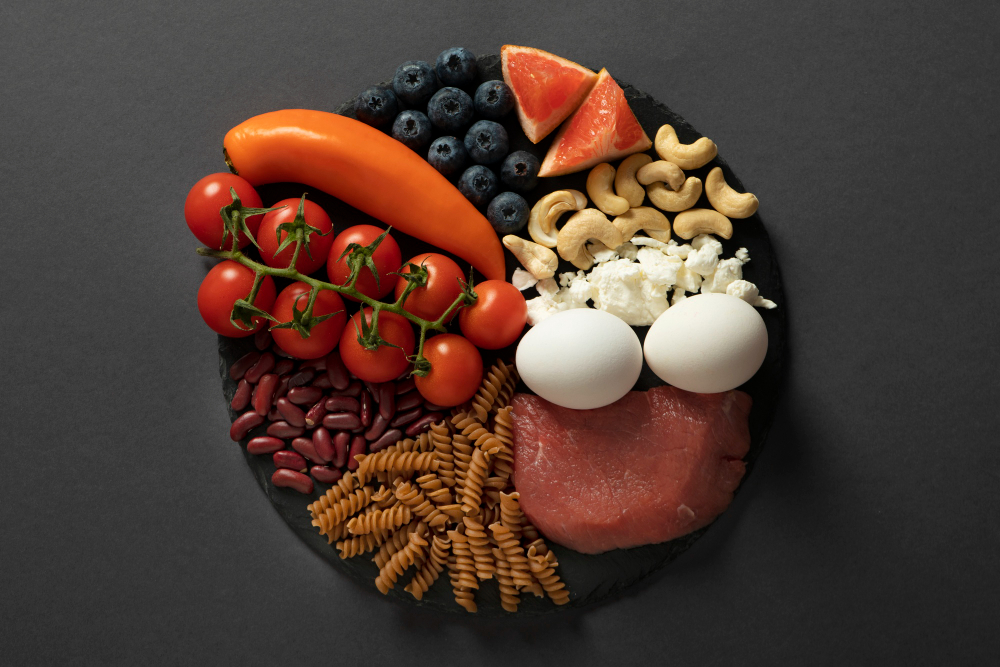Nourish Your Skin from the Inside Out: The Best Foods for Healthy Skin

Our skin is a reflection of our overall health and wellness. While a good skincare routine can work wonders, the old adage "you are what you eat" couldn’t ring truer when it comes to the vitality of our skin. Just as different nutrients support various vital functions of the body, certain foods can promote the health and appearance of our skin. With this in mind, we explore the essential foods that contribute to radiant, healthy skin and how you can incorporate them into your diet for a glowing complexion.
The Foundation of Good Skin – Hydration
Before we even talk about food, it’s crucial to establish that the foundation of any good skincare regimen starts with hydration. Drinking plenty of water helps to flush out toxins, maintain the skin’s elasticity, and delay signs of aging. Aim for at least eight glasses a day, or more if you’re physically active or in a hot, arid climate.
Foods Rich in Antioxidants – A Bevy of Skin Benefits
Berries
Berries are like multivitamins for the skin. They’re packed with antioxidants, which strengthen the skin’s elasticity and provide protection against the damaging effects of the sun. Blueberries, strawberries, and blackberries are brimming with vitamin C, which aids in collagen production, a protein essential for the skin's structure.
Tomatoes
Tomatoes contain lycopene, a powerful antioxidant known to be especially effective in preventing the damaging effects of UV radiation. Cooking tomatoes can increase the bioavailability of lycopene, making canned tomatoes, tomato paste, and tomato sauce great additions to your diet.
Healthy Fats for Moisture – Avocado and Olive Oil
Avocados
Avocados are a one-stop-shop for skin health. They’re loaded with healthy fats, vitamins C and E, and biotin - a combination that promotes moisturized skin and prevents brittle hair and nails. Avocados are also a source of vitamin K, which helps with the skin’s healing process.
Olive Oil
Olive oil is rich in monounsaturated fatty acids and antioxidants like vitamins A and E. It’s a staple in the Mediterranean diet, known for its skin-beneficial properties. Regularly consuming olive oil can improve skin health, making it look and feel smoother.
Collagen Boosters – Fish and Nuts
Fish
Fatty fish, particularly salmon, mackerel, and herring, are excellent sources of omega-3 fatty acids. These healthy fats keep the skin thick, supple, and moisturized. They also reduce inflammation, which can cause redness and acne.
Nuts
Nuts are a great source of minerals and healthy fats. Almonds, for instance, are rich in vitamin E, which is crucial in protecting the skin from oxidative damage. Walnuts contain essential fatty acids that the body cannot make itself, making them vital to skin health.
Lean Protein for Repair and Maintenance
Chicken Breast
Lean meats like chicken breast are an excellent source of protein. Protein is essential for the repair and maintenance of body tissues, including the skin.
Legumes
For vegetarians and vegans, legumes like lentils and chickpeas are great sources of plant-based protein. They also contain zinc, a mineral that assists in the wound-healing process and prevents acne by regulating the skin’s oil production.
Vibrant Veggies Full of Skin-Saving Nutrients
Sweet Potatoes
High in beta-carotene, sweet potatoes act like a natural sunblock. When consumed, this pigment is incorporated into the skin, helping to protect it from sunburn. Additionally, sweet potatoes deliver a boost of vitamin A, which promotes cell turnover, and in turn, a radiant complexion.
Leafy Greens
Spinach, kale, and Swiss chard are packed with vitamins A, C, and E, alongside iron and omega-3s - a potent combination for clear, healthy skin. These leafy greens are also high in chlorophyll, which can speed up the skin’s healing processes.
Dairy for Calcium and Vitamin D
Low-Fat Yogurt
Yogurt is a great source of calcium, which supports cell turnover and prevents dry skin. It also contains vitamin D, which is crucial for skin health. Opt for low-fat or plain yogurt to avoid potential skin-irritating added sugars and flavors.
What About Hygiene?
While food is an integral part of your skin health, good hygiene and regular skincare lie at the heart of a glowing complexion. Always wash your face gently with a suitable cleanser, follow with a toner, apply a serum, moisturize, and don’t forget to apply sunscreen, even on cloudy days.
Remember that everyone’s skin is unique, and what works for one person may not work for another. If you have specific skin concerns, consult with a dermatologist. They can provide personalized recommendations based on your skin type and any conditions you might have.
Finally, try to keep your stress levels in check. High stress can lead to skin issues, so be sure to get adequate sleep, exercise regularly, and consider relaxation techniques like mindfulness or yoga.
By nourishing your skin from the inside out, you’re taking a proactive approach to your skin’s health. Incorporating these skin-friendly foods into your diet, along with maintaining a solid skincare routine, can leave you with a complexion that radiates health. If you're looking for Meals on Wheels in Chester County, PA, contact Empire Meals on Wheels today for more information.